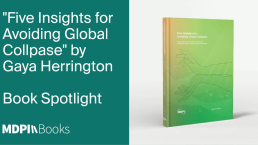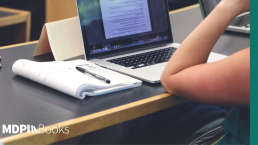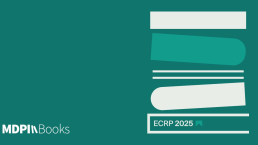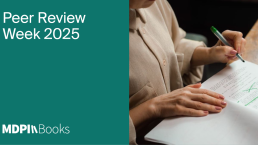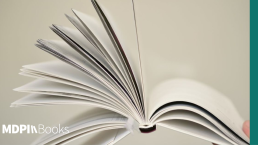
Publishing Your Academic Book as Open Access
Publishing your academic book as open access sounds like a daunting task, right? Well, don’t worry. In this guide, we will walk you through what academic open access book publishing is and the key elements involved in publishing your academic book as open access.
What is open access book publishing?
Open access is an online movement that seeks to make research freely and immediately available to the reader.
Open access book publishing follows a similar principle to open access in scholarly journals but is applied to books. The two formats are very different, however.
Open access journals have been around for more than two decades, but open access books are not quite as established yet. This is arguably because of the more complex and extensive nature of open access book publishing compared to journal publishing. Open access book publishing involves making academic books freely available to the public without the traditional barriers of access, such as purchase costs or restrictive licensing agreements.
This model aims to increase the accessibility and visibility of academic books, allowing a broader audience to benefit from this research.
Why you should publish your academic book as open access
Publishing your academic book as open access comes with several potential benefits, both for authors and the broader academic community. Although we have a more extensive breakdown of the reasons why you should publish your book as open access, here are some reasons why you might consider publishing your book as open access.
High visibility
Open Access Books benefit from maximum visibility and broad dissemination. Anyone with an internet connection can read your book. No paywall means readers are not inhibited from accessing your research and insights.
Here at MDPI Books, we submit our academic Open Access Books to international indexing databases and archives such as DOAB and OAPEN. This ensures the accessibility and longevity of your research.
Additionally, we provide worldwide distribution and targeted marketing for our books. Each publication comes with its unique identification number (ISBN) and Digital Object Identifiers (DOIs) assigned at the book and chapter level, with metadata delivered to Crossref.
Quality control and rapid publication
We can safely dispel the myth that open access publishing results in a loss of quality. Open access publishers use the same quality controls as non-open access publishers. All editorial processes (like pre-check, peer review, and revision) to production processes (layout and editing) are considered (a little more on these processes later).
MDPI Books prioritises fast publication of your academic Open Access Book. Depending on various factors, submission to publication for Monographs and Edited Books usually takes between 6–12 months. Traditional publishing takes on average 18 months, highlighting the faster production process for Open Access Books.
Importantly, our approach to fast publication is not in contradiction to our commitment to publishing high-quality Open Access Books. We pride ourselves on being able to prioritise both speed and quality equally during our book production process.
Authors retain copyright
When you publish your academic book as open access, you retain the copyright to your work. This is made possible by your Open Access Book being published under a Creative Commons License. A Creative Commons License is a copyright law that gives the public a standardised way to use and reproduce your work.
How to publish your academic book as open access
Using our step-by-step guide, we’ll show you how easy it is to publish your academic book as open access with MDPI Books.
1. Submit a proposal
If you’re ready to make your academic Open Access Book a reality, submit a proposal to MDPI Books today! Don’t forget to include details of your book, such as the number of pages, figures and references, contents, authorship model, the intended readership, and what the book adds to the existing literature.
Be aware that accepted proposals need secured funding to cover the book processing fees, which we shall now explain.
2. Book and chapter processing fees/quote and agreement
Book and chapter processing fees perhaps cause the most confusion when it comes to open access publishing. Although Open Access Books are made freely available online, this model relies on funding to cover publication costs, including editorial and production work, due to limited income-generating book sales.
Funding typically comes from the author’s university department or library, professional institution, industry sponsorship, charitable support, or a national research grant. At MDPI Books, Monograph authors are sent a non-binding price quote before the final agreement is drawn up and signed. Edited Book chapters are subject to a standard fee.
If you are unsure or worried about finding funding for your academic Open Access Book, we’re here to help. We may offer waivers and discounts in cases where authors do not have access to funding.
3. Manuscript writing, preparation, and submission
With your proposal approved, funding secured, and agreement signed, you can now focus on bringing your manuscript to life.
The writing process is the most laborious process you’ll have to undertake on the road to publication, but it is also here where you can demonstrate your originality and expertise. Remember to consider how your manuscript may add to the existing literature and function to advance pre-existing knowledge.
To have your academic Open Access Book considered, manuscripts must be submitted in grammatically correct English for publication. Please see our guidelines for authors. If you require professional editing, MDPI offers an English editing service.
Whether taking the form of a chapter in an Edited Book or a full Monograph, your manuscript must use the relevant template files provided. For convenience, MDPI Books provides you with all the template files in one place.
Once ready, you can submit your manuscript! Manuscripts are submitted and managed in our online submission system. A production editor guides authors through each step.
4. Editorial Process: Review
Pre-Check
After submission, manuscripts are checked for plagiarism, data falsification, reuse permissions for figures, inappropriate authorship credit, etc. You may need to revise at this stage.
Invoicing
The invoice is generally paid by the author, institution, or the funder before peer review. If the submitted manuscript differs substantially from the agreed terms (e.g., length, language quality, formatting), the BPC may be adjusted beyond the originally quoted price.
Review
The Editorial Office coordinates peer review. A minimum of one review must be secured before a manuscript is accepted. If traditional external, independent peer review is not performed, there will be a statement on the book webpage and/or the copyright page of the book.
Revision
Authors/editors are asked to correct issues identified by editors and peer reviewers. There may be one or more review and feedback rounds. By default, reviewers who request major revisions or recommend rejection are sent the revised manuscript.
Publication Decision & Acceptance
An assessment is made based on the reviews, authors’ responses, and overall quality of the manuscript. The editor can select from the following options: accept in current form, accept with minor revisions, reject, ask author for revision, or ask for an additional reviewer.
5. Editorial Process: Production

Design, Formatting, and Editing
For all manuscripts accepted for publication, the Editorial Office carries out production, including formatting, language editing, and typesetting. Optional figure editing is also carried out at this stage.
Proofreading
Authors/editors are asked to proofread their manuscript and confirm the final proofs prior to publication.
Typesetting
An advanced typesetting software (LaTeX) is used to produce the final PDF.
Book indexing
Authors and editors may add an index to their books. The book is sent to a professional indexer after final proofreading.
Publication
A book can be reviewed, edited, published, and ready to order in as little as 6 to 12 months. Our books can be downloaded for free, and printed copies can be purchased via our library or established channel partners.
You can now rest easy knowing that your academic book is out there in the world, making a real impact thanks to the benefits of open access.
Now you know how to publish your academic book as open access, what are you waiting for? Submit your book proposal with MDPI Books today.


